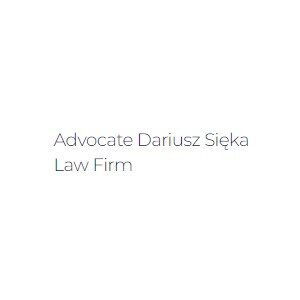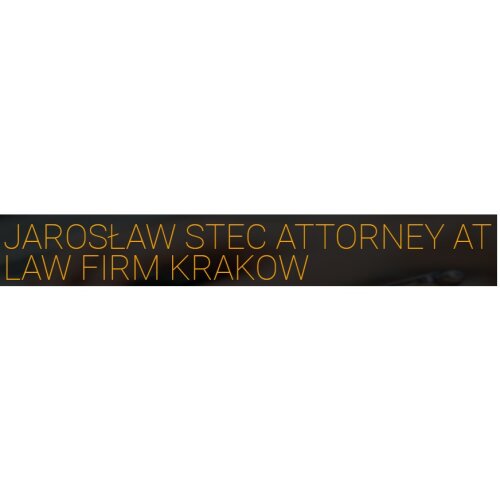Best Constitutional Law Lawyers in Krakow
Share your needs with us, get contacted by law firms.
Free. Takes 2 min.
List of the best lawyers in Krakow, Poland
About Constitutional Law in Krakow, Poland:
The Constitution of the Republic of Poland is the supreme law in Poland. It lays down the legal foundation of the Polish state, its institutions, the legal status of citizens, their rights and obligations, and the principles of the country's economy. Constitutional law in Krakow, like anywhere else in Poland, is governed by this constitution adopted on April 2, 1997. Any legal disputes related to the constitution are handled by the Constitutional Tribunal, which is responsible for adjudicating on the constitutionality of laws.
Why You May Need a Lawyer:
Though the Constitution grants certain rights and freedoms to individuals, disputes may arise due to varying interpretations, leading to constitutional legal disputes. You may need a constitutional lawyer if your rights, as stipulated by the constitution, are violated. This could include situations such as unlawful detention, discrimination, or violation of freedom of expression, the right to social security, or the right to a fair trial. A constitutional lawyer can also help if you're dealing with issues related to citizenship, constitutional amendments, or challenges to a legislation's constitutionality.
Local Laws Overview:
The fundamental rights and duties of the public and private entities in Krakow are governed by the Constitution of the Republic of Poland. Key aspects of the Constitutional law relevant to Krakow include: human rights, individual freedoms, political and social rights, mechanisms to challenge unconstitutional laws, protection of minority rights, and the duties and powers of state organs, among others.
Frequently Asked Questions:
1. What rights are protected by Polish Constitutional Law?
The Constitution protects several rights, including the right to life, personal freedom, privacy, fair trial, peaceful gatherings, and freedom of conscience and religion among a host of others.
2. Can the Constitutional Tribunal overturn laws passed by the government?
Yes, the Constitutional Tribunal can determine if a law or provision violates the constitution, and can declare it non-binding.
3. How can I challenge a violation of my constitutional rights?
If you believe your constitutional rights have been violated, you should contact a constitutional lawyer who is expert in filing complaints to the proper authorities and possibly bring the case before the Constitutional Tribunal.
4. What role does a constitutional lawyer play?
A constitutional lawyer can guide you through the legal challenges and processes, provide legal advice related to constitutional law, and represent you in court if necessary.
5. How is the Constitution of Poland amended?
Amending the constitution requires the support of a two-thirds majority vote in the Lower House of Parliament (the Sejm), and an absolute majority in the Senate, followed by the President's approval.
Additional Resources:
For further assistance, you can reach out to the following:
- The Constitutional Tribunal of the Republic of Poland: for issues related to constitutional disputes.
- The Ombudsman (Rzecznik Praw Obywatelskich): for protection of basic rights.
- Centers for Civic Education or Local civic organizations: for information and workshops on constitutional law.
Next Steps:
If you need the assistance of a constitutional lawyer in Krakow, it's best to find a local law firm that specializes in constitutional law. Research the firm and lawyer's experience and reputation in the field. Remember to prepare all the relevant documents that adequately explain your situation. Then, make an appointment for a consultation to discuss your case.
Lawzana helps you find the best lawyers and law firms in Krakow through a curated and pre-screened list of qualified legal professionals. Our platform offers rankings and detailed profiles of attorneys and law firms, allowing you to compare based on practice areas, including Constitutional Law, experience, and client feedback.
Each profile includes a description of the firm's areas of practice, client reviews, team members and partners, year of establishment, spoken languages, office locations, contact information, social media presence, and any published articles or resources. Most firms on our platform speak English and are experienced in both local and international legal matters.
Get a quote from top-rated law firms in Krakow, Poland — quickly, securely, and without unnecessary hassle.
Disclaimer:
The information provided on this page is for general informational purposes only and does not constitute legal advice. While we strive to ensure the accuracy and relevance of the content, legal information may change over time, and interpretations of the law can vary. You should always consult with a qualified legal professional for advice specific to your situation.
We disclaim all liability for actions taken or not taken based on the content of this page. If you believe any information is incorrect or outdated, please contact us, and we will review and update it where appropriate.













